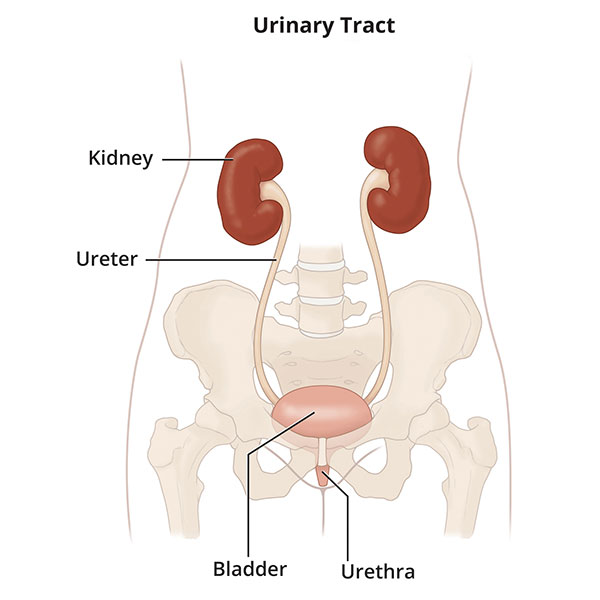Interstitial Cystitis (Bladder Pain Syndrome)
View or Print All Sections
Definition & Facts
Interstitial cystitis (IC) is a chronic, or long-lasting, condition that causes painful urinary symptoms. Between 4 and 12 million people in the United States may have IC.

Symptoms & Causes
People with IC have discomfort, pressure, tenderness, or pain in the bladder, lower abdomen, and pelvic area. Symptoms vary among people, may come and go, and can change over time.
Diagnosis
Health care professionals diagnose IC by ruling out other conditions with similar symptoms. They will use your medical history, a physical exam, and lab and other tests to help diagnose IC.
Treatment
You may be able to treat your IC with lifestyle changes. Your health care professional may also recommend bladder training, physical therapy, medicines, bladder stretching, bladder instillation, or a combination of these treatments.
Eating, Diet, & Nutrition
Some research suggests diet may affect IC symptoms. Many people find that certain foods and drinks can make their IC symptoms worse, such as alcohol, citrus juices, chocolate, and tomatoes.
Clinical Trials
NIDDK conducts and supports clinical trials in many diseases and conditions, including urologic diseases. The trials look to find new ways to prevent, detect, or treat disease and improve quality of life.
The Urinary Tract & How It Works
The urinary tract is the body’s drainage system for removing urine, which is composed of wastes and extra fluid. In order for normal urination to occur, all body parts in the urinary tract need to work together in the correct order.
Related Conditions & Diseases
Related Diagnostic Tests
Related Research
See more about urologic diseases research at NIDDK.
This content is provided as a service of the National Institute of Diabetes and Digestive and Kidney Diseases
(NIDDK), part of the National Institutes of Health. NIDDK translates and disseminates research findings to increase knowledge and understanding about health and disease among patients, health professionals, and the public. Content produced by NIDDK is carefully reviewed by NIDDK scientists and other experts.
NIDDK would like to thank:
J. Quentin Clemens, M.D., University of Michigan

